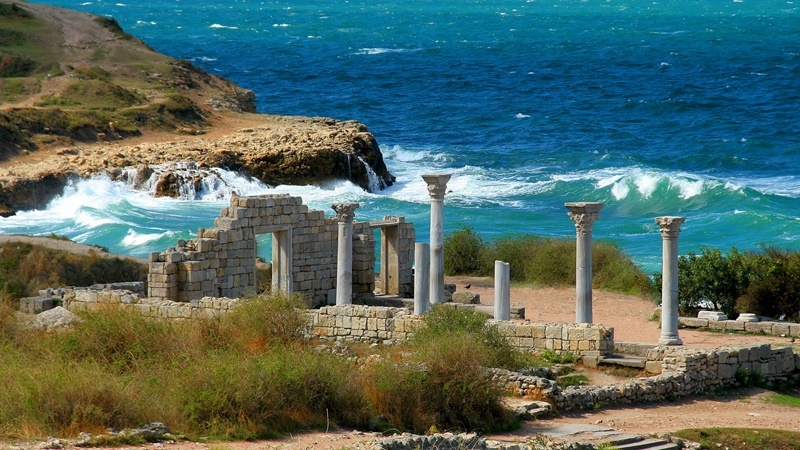Russian regional affairs analyst Anton Chablin points out that the recently released budget figures for 2021 show enormous spending on Crimea is set to continue. Moscow plans to channel no less than 102 billion rubles ($1.5 billion) to support 68 percent of the budget of Crimea. That figure is larger than the subsidies going to Dagestan and Chechnya: 96.7 billion rubles ($1.4 billion) and 78.8 billion rubles ($1.1 billion), respectively. When the Russian economy was somewhat healthier, Russians generally ignored those costs as the generous outlays to the country’s newest imperial possession were not considered a serious problem. But now, the situation has changed; and the numbers Chablin cites will likely lead an increasing number of Russians to ask whether Crimea is worth it. Although such a mental shift may not push Moscow to return Crimea to Ukraine, it could certainly further undermine Russian support for Putin and make it more likely he will launch some new offensive to rebuild “patriotic” fervor around himself.
The first signs of popular unhappiness about this spending are likely to emerge as the State Duma (lower chamber of parliament) considers the budget, Chablin writes. Deputies almost certainly will focus on three things: 1) the growth in Moscow’s subsidies rather than the declines the Kremlin had promised in earlier years; 2) the overly optimistic predictions about tax collection made by the Russian regime in Crimea that are unlikely to be met and that will force Moscow to pay out even more than it is budgeting; and, especially offensive to many in the current environment, 3) the fact that the administration on the peninsula continues to spend ever more money on itself rather than on things like vacation resorts that might benefit average Russians.
From the beginning of the annexation, independent Russian observers did point out that the direct costs associated with integrating Crimea would be far larger than and last longer than the Kremlin promised. Historian Arkady Popov, for example, said that the Kremlin’s pledge to end subsidies amounting to a trillion rubles ($160 billion) after only five or six years was absurd. Not only was that amount, in fact, more than Moscow could possibly afford—it exceeded the projected subsidies to the North Caucasus and the Russian Far East over the same period—but it was actually far less than would be needed given the collapse of the economy in Crimea since Russia occupied it. And even then, there were Russians complaining that Moscow had “billions” for Crimea but no money to refurbish their decaying housing.
Trending Now
In the intervening years, various experts have attempted to put a price on Moscow’s assistance to Crimea; however, the Russian government has done what it can to obscure what it has been spending. Perhaps the best estimate came last year. It was prepared by economist Sergei Aleksashenko, who, in a book-length study, asserts that Crimea had by then cost Russia 1.5 trillion rubles ($23.5 billion). That figure, he points out in the piece, equals approximately 10,000 rubles ($160) for every man, woman and child in the Russian Federation. Or put another way, Aleksashenko continues, Moscow is now spending on Crimea 357 times the amount it is spending on the Russian Academy of Sciences, even though he concedes that a majority of Russians, as of 2019, did not think that the annexation was having a negative impact on their lives.

That passive acceptance may now be changing. For one thing, these budget figures are coming to light at a time of pandemic-induced suffering. And for another, Russians are increasingly aware of the collateral financial costs associated with Crimea that are not being counted in those base subsidy amounts. Among the largest of these associated costs, which has attracted significant attention recently, is what Moscow may be forced to spend in the coming months to ensure that the peninsula has enough drinking water. Those estimated expenses are sufficiently great that Putin might decide on an alternative solution: launching a new military campaign against Ukraine to gain control of water supplies that Crimea lost access to when Russia occupied it. If that were to happen, what may seem like a minor budgetary dispute could reignite the military conflict between Moscow and Kyiv, with all the far-reaching consequences that would involve.
Read also:
- Critical water shortage in Crimea may prompt new Russian attack against Ukraine
- FSB tortures detainees in occupied Crimea as law enforcement goes Soviet-style, UN report confirms
- Ukraine’s water blockade of Crimea should stay, because it’s working
- Russia can’t solve Crimea’s water problem
- 76 years after deportation, Crimean Tatars are again being erased from history in Crime
- Russia’s replacement of population in occupied Crimea violates Geneva Convention – UN report
- Crimean history. What you always wanted to know, but were afraid to ask
- Legal battle: How Ukraine sues Russia in international courts





